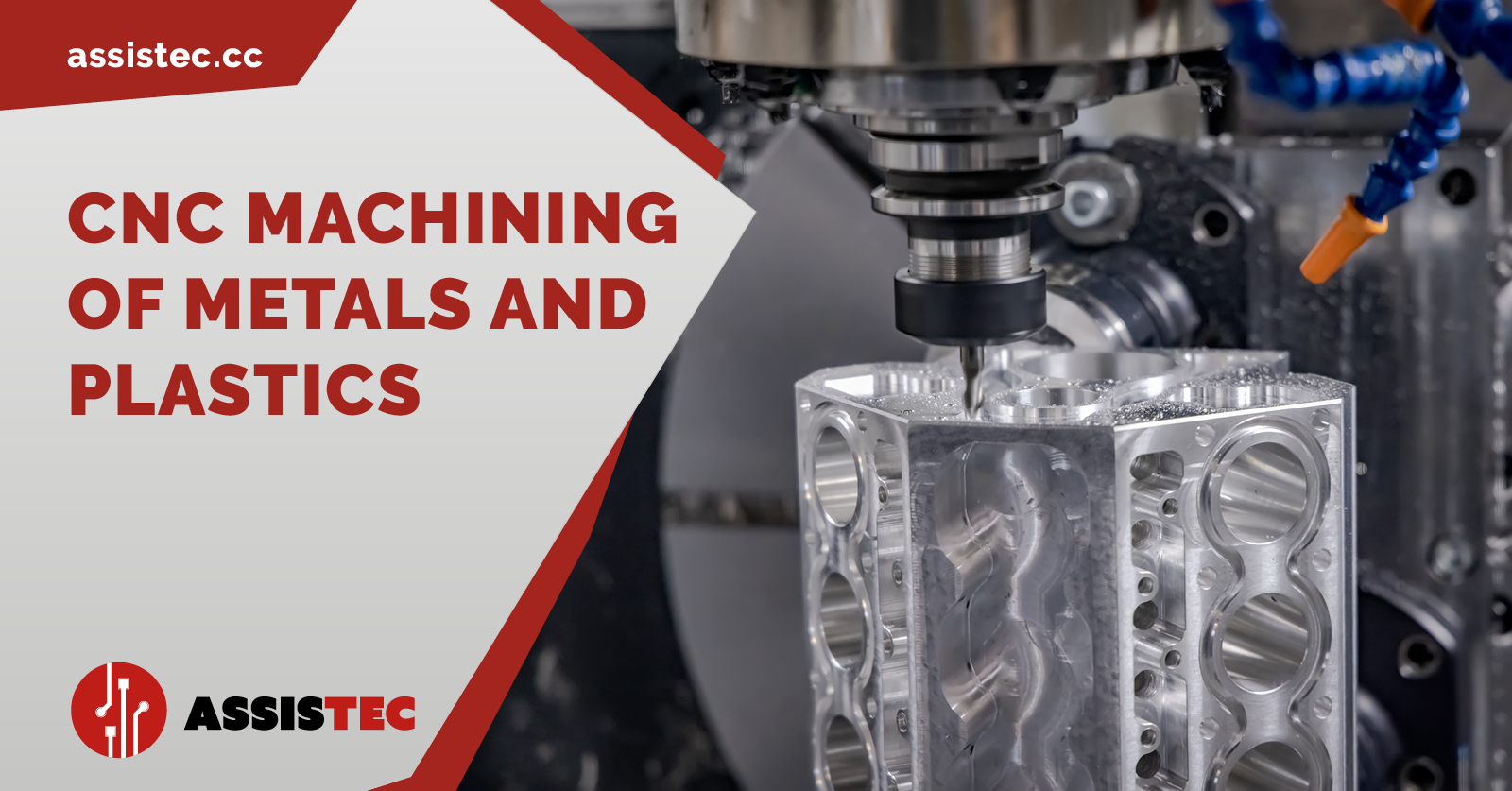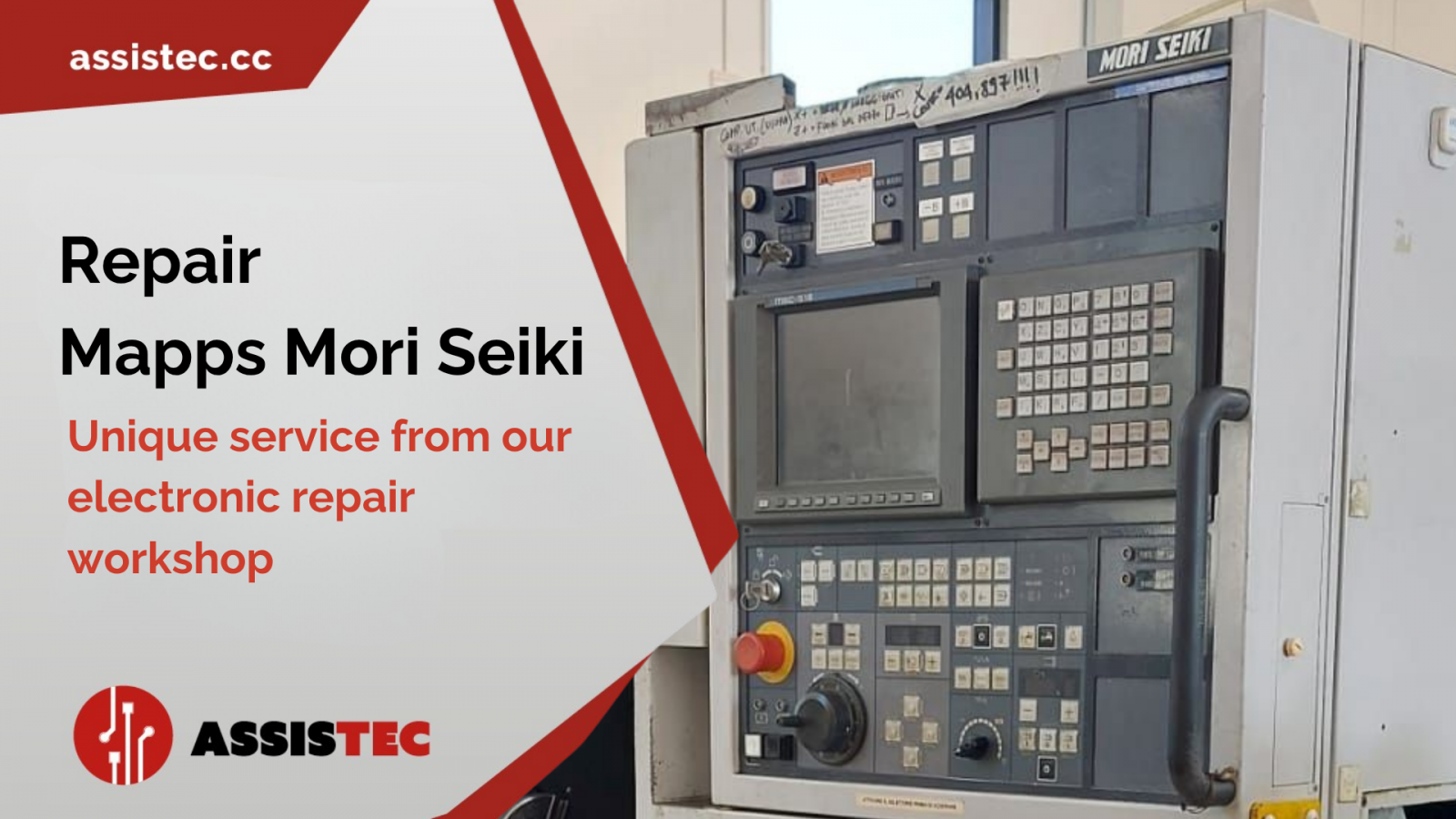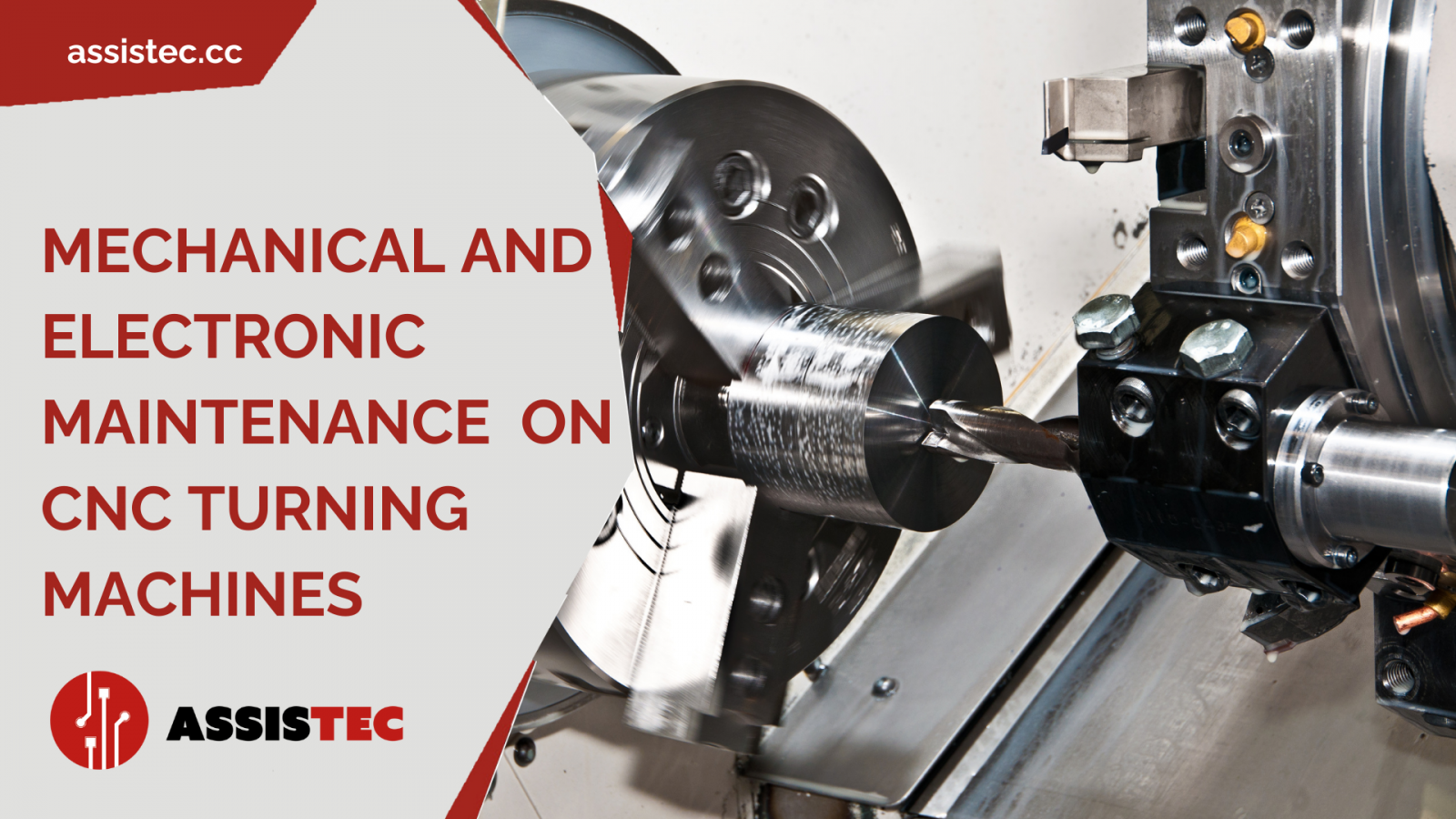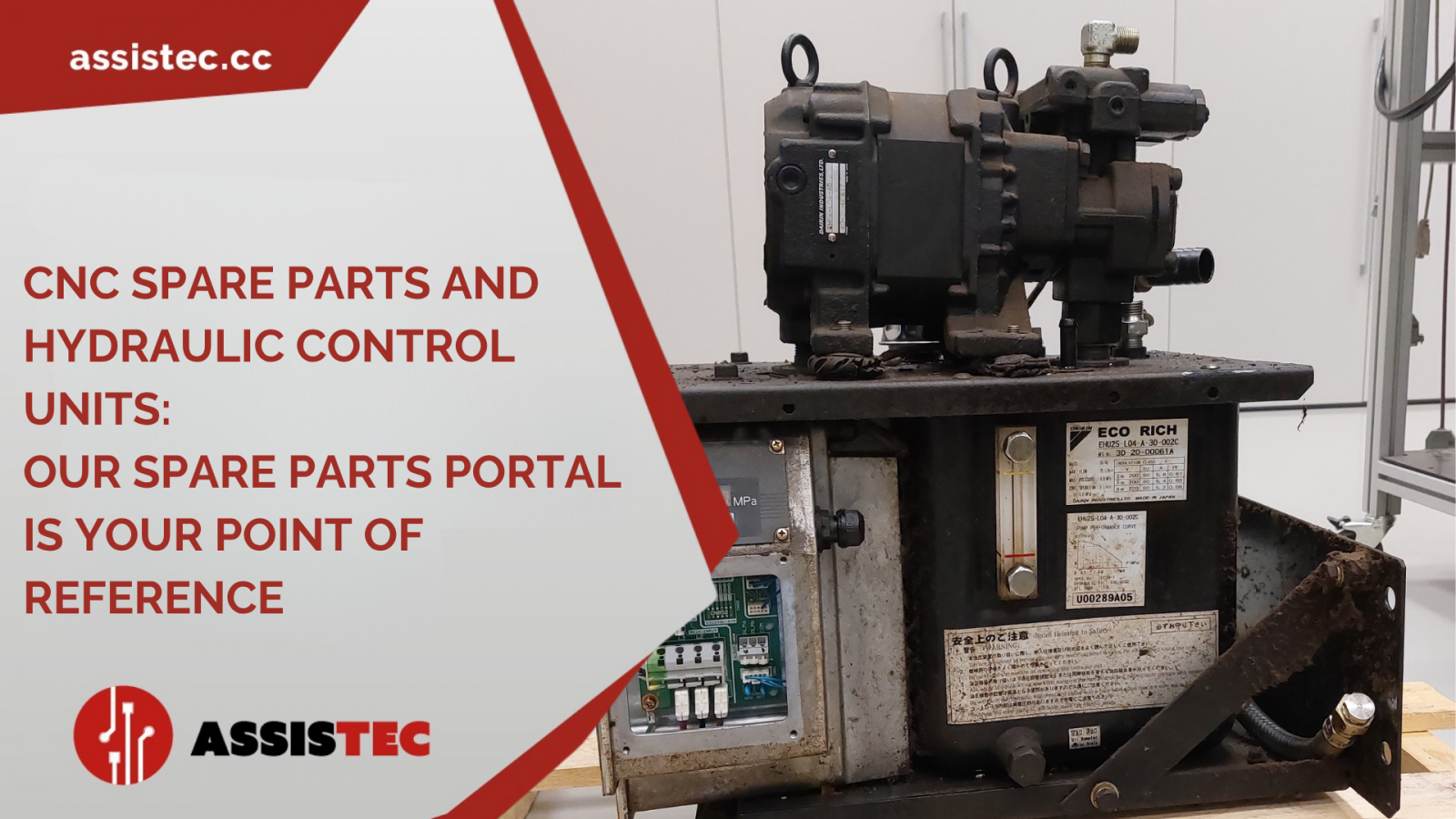CNC metal and plastic machining: how does it work?

 CNC Machining of metals and plastics has a variety of applications in contemporary industry and makes it possible to obtain extremely precisely designed components, whatever their size.
CNC Machining of metals and plastics has a variety of applications in contemporary industry and makes it possible to obtain extremely precisely designed components, whatever their size.
In fact, CNC (Computer Numerical Control) machining has revolutionized the manufacturing sector because it has offered companies the ability to shape metals and plastics with unparalleled flexibility.
This is why we want to go into more detail about CNC machining of metals and plastics, delving into the features, advantages and applications of this innovative process.
CNC machining of metals
Let's go in order, separating our analysis into two main categories: metal and plastic.
CNC metal machining is a process widely used for the production of complex, high-precision components in a variety of industries(we will see which ones in a few lines).
One of the most common needs is CNC machining of aluminum, a lightweight, corrosion-resistant metal that is therefore suitable for all those extremely stressful contexts in which it is essential to be able to rely on a durable and safe material (aerospace, automotive, ...).
Of course, this is not the only metal that can be machined. We also have:
• steel - used for its strength and hardness in structural components, tools and machinery;
• titanium - excellent strength and biocompatibility, which is why it is widely used in medical applications;
• copper - metal with excellent electrical and thermal conductivity, used for electrical components and heat exchangers;
• brass - ductile and malleable material, suitable for the production of fittings, valves and other components.
CNC machining of plastics
Changing categories, CNC machining of plastic polymers offers a viable alternative to traditional manufacturing methods, enabling the production of lightweight, strong and versatile components, regardless of the complexity of the design.
The main plastic materials that can be CNC machined include:
•PVC - increasingly popular because it is inexpensive, versatile and weatherproof, and widely used in construction;
•acetal - is a tough, rigid plastic with a low coefficient of friction (perfect for gears, bearings and precision components);
•nylon - durable, tough and with good sliding properties;
•polyethylene - flexible, impact-resistant and chemically inert plastic, characteristics that make it suitable for packaging, electronic components and pipes.
•polycarbonate - transparent, impact resistant and high temperature resistant, it is used, for example, for the production of screens.
Advantages of CNC machining of metals and plastics
The introduction of CNC machining and its subsequent developments have brought a number of notable advantages to the industrial field. Starting with guaranteed high precision and repeatability. CNC machines, in fact, guarantee an unparalleled level of precision, even when making complex geometries. This undoubtedly plays in favor of customization, which is difficult to achieve (with this level of detail) with traditional methods.
Repeatability is achieved through mass production of components with extremely tight tolerances. Production that becomes highly automated, with speed and efficiency of machining increased in favor of high productivity.
Automation also brings with it the undoubted advantage of reducing waste: this means that CNC machining of materials also has a positive impact on the environment (an important factor also in view of a transition to Industry 5.0) and allows minimizing waste of raw materials.
Equally important is the flexibility that can be achieved, because CNC machining can be used on a wide range of metals and plastics, even (as we have seen) with very different properties and characteristics.
CNC machining of metals and plastics: the applications
Some we have already named, now we can go into more detail. CNC machining of metals and plastics is used in a wide range of industries, including:
•aerospace - used in the manufacture of lightweight, high-precision components for aircraft and spacecraft;
•automotive-a wide range of components for engines, transmissions, and other automotive systems;
•medical - production of prosthetics, surgical instruments and other medical devices where very high precision or a high degree of customization is required;
•electronics - components for printed circuit boards, housings, and other electronic elements; -mechanical industry - more generally, CNC machining greatly optimizes the production of parts for machine tools, electric motors, and other mechanical components.
How to choose the right CNC machine for metal and plastic processing?
There are several elements to consider. Your analysis should be conducted based on production needs (the type and volume of production to be handled), the materials to be processed (there are machines that are more suitable than others depending on the specificity of the metal or plastic polymers to be CNC machined), the size of the parts to be made (in terms of maximum dimensions), and, of course, based on the available budget.
From this preliminary analysis, then, one can go into more specifics and evaluate:
•type of machine - CNC milling machines, CNC lathes, CNC machining centers or combination machines;
•spindle power - each machine has different characteristics in terms of the power required to machine the chosen materials;
•work area - different machine tools have different worktable sizes to accommodate workpieces;
•precision-the level of precision required to manufacture parts;
•numerical control-the specific features of the numerical control system for operating the machine (the one that will then need to be programmed based on the specific requirements);
•optional and accessories-additional equipment such as cooling systems, automatic tool changers, and quality control systems.
If we are talking about CNC machines for metalworking, we also need to evaluate the rigidity of the machine, which is essential to ensure stability when machining hard metals, and the presence of cooling systems, which are necessary to dissipate the heat generated when machining metals.
Looking instead at CNC machines for machining plastics, you'll be interested in the features of spindle speed (a high speed for precise machining even on soft plastics), the presence of efficient suction systems, useful for removing plastic chips during machining, and temperature control, to prevent plastic deformation during machining.
Discover Assis-tec solutions for CNC machining of materials
A CNC machine for metal and plastic processing is a key component of the production process within a company, and for this reason, it is important that everything always works at its best.
From this point of view, relying on experienced and qualified suppliers is essential, for example, to get proper advice even at the purchase stage (important names from this point of view are MCM Spa and Biglia Spa ) and to identify the CNC solution best suited to your specific needs.
If, on the other hand, what you need is optimization, because you are looking for software for CNC programming specifically for metal or plastic, or you need mechanical and electronic assistance on the machinery already in your company, you can count on us. Assis-tec is your ideal technology partner: over 25 years of experience but with a young and dynamic attitude, we can also help you solve any anomaly or machine downtime quickly and efficiently.
Recent Posts

-
MAPPS Mori Seiki: cutting-edge technology at the service of CNC programming
In the world of CNC machining, Mori Seiki has always been synonymous with precision, efficiency and innovation. Among the systems that have contributed most to building this reputation, MAPPS (Machine Advanced Programming Production System) occupies a place of absolute importance. This hardware, integrated into Mori Seiki machines (updated in CELOS), allows for intelligent management of every stage of production, from programming to simulation. Today, thanks to the many years of experience of the Assistec laboratory, it is possible to repair MAPPS Mori Seiki, with the certainty of turning to a team of qualified, up-to-date and responsive professionals.
-
CNC lathes are the beating heart of many mechanical workshops and manufacturing companies. However, their ability to guarantee precision, production continuity and impeccable finishes depends on a factor that is often underestimated: maintenance. Regular mechanical and electronic maintenance is not only a technical requirement, but also a business strategy that reduces machine downtime, preserves product quality and extends the life of the equipment. This guide explores all the operations necessary for comprehensive maintenance, with practical advice and guidance on when it is essential to rely on specialised professionals.
-
The efficient management of CNC machine tools cannot be separated from a reliable, timely and well-organised spare parts system. This is where the Assistec Spare Parts Portal comes into play, designed to provide concrete support to workshops, maintenance technicians, technical managers and industrial buyers.
Thanks to direct integration with the automated warehouse, the portal allows you to identify and order new and remanufactured components in just a few clicks, with real availability and fast shipping.
Among the most requested spare parts today are hydraulic control units, which are essential for ensuring the operational continuity of CNC systems



